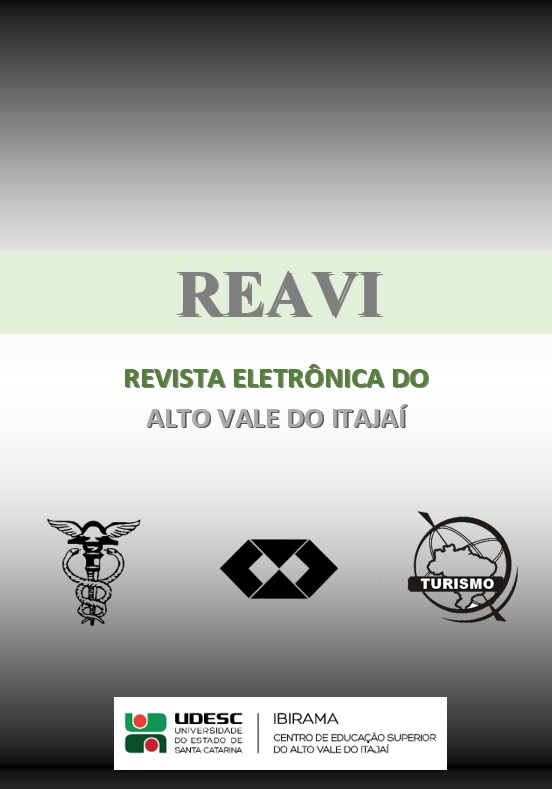The magistrates 'perception to changes in thelabor legislation and accounting expert
DOI:
https://doi.org/10.5965/2316419009152020013Keywords:
Labor Reform, Accountant Expert, Magistrates, Accounting Expertise, Work JusticeAbstract
The objective is to study the perceptions of magistrates regarding changes in labor legislation and the role of accounting experts. To reach the goal, a field survey was conducted. The sample of the research, would be composed by all the Magistrates of the Circumscription of Brasília, but not all accepted. Thus, the final sample consisted of ten judges holding the 10 th Regional Labor Court. The paper presen ts the most significant changes in the magistrates' view, and their position in relation to the changes are positive or negative. Based on Bardin's Content Analysis (2011), the division was divided into thematic categories and it was concluded that there are numerous controversial points in the new law and some are considered by the magistrates as unconstitutional. For the accountants, the Labor Reform can bring two impacts: the first is a new possibility of work, because now there is the need for the requests to be settled from the beginning and thus the party will seek the services of the accountant already in the initial phase of the process; the second is that now the responsibility for the payment of expert fees becomes the succumbing party in the claim object of the expert, even if beneficiary of the free trial. This may be due to a lack of accounting experts.Downloads
References
BARDIN, Laurence. Análise de conteúdo. São Paulo: Edições 70, 2011.BRASIL. Consolidação das leis do trabalho.Decreto-lei nº 5.452, de 1º de maio de 1943.
BRASIL. CPC. Código de Processo Civil. Lei nº 13.105, de 16 de março de 2015. Disponível em: http://www.planalto.gov.br/ccivil_03/_ato2015-2018/2015/lei/l13105.htm. Acesso em 19 de maio de 2018.
BRASIL. Lei nº 13.467, de 13 de julho de 2017. Altera a Consolidação das Leis do Trabalho, Brasília, DF, jul. 2017.
CFC. NBC T 13.4.2. Normas Brasileiras de Contabilidade –NBC T 13.4.2 da perícia contábil, de 27 de fevereiro de 2015.
BRASIL. CFC. NBC TP 01. Normas Brasileiras de Contabilidade–NBC TP 01, de 27 de fevereiro de 2015.
BRASIL. CFC. NBC. Normas Brasileiras de Contabilidade–NBC PP 01, de 27 de fevereiro de 2015.
CALDEIRA, Sidenei. A influência do laudo pericial contábil na decisão dos juízes em processos nas varas cíveis. 2000. 113f. Dissertação de Mestrado -Universidade Federal de Santa Catarina, Florianóplois, 2000.
CARVALHO, Edjan Baldo e MARQUES, Claudio. Perícia contábil nas relações de trabalho em processos judiciais. Enfoque reflexões contábeis, v.24, n.2, p. 36-52, Julho-Dezembro/2005.
CEZAR, Frederico Gonçalves. O processo de elaboração da CLT: histórico da consolidaçao das leis trabalhistas brasileiras em 1943. Revista Processus de Estudos de Gestão, Jurídicos e Financeiros –Ano 3 –Edição Nº 07, p.13-20, ISSN 2178, 2008.
CNC. A Reforma Trabalhista-A nova Consolidação das Leis do Trabalho. Confederação Nacional do Comércio de Bens, Serviços eTurismo, CNC, 2017.DIAS, Glauco Braga; CAVALCANTE, Luiz Ricardo Mattos Teixeira. Custos, insegurança jurídica e terceirização: percepção das empresas. Direito e Desenvolvimento, v. 10, n. 2, p. 222-240, 2019.
FIGUEIRAS, V.A., LIMA, U.M., & SOUZA, I.F.D.(2019). Os impactos jurídicos, econômicos e sociais das reformas trabalhistas. Caderno CRH, 32(86),231-252
FIGUEIREDO, Sandoval Nunes. A perícia contábil e a competência profissional. Revista Brasileira de Contabilidade,n. 142, p. 40-47, jul./ago. 2003.JÚNIOR, Idalberto José das Neves et al. Pericia Contábil Judicial: A Relevância e a Qualidade do Laudo Pericial Contábil na Visão dos Magistrados do Estado do Rio de Janeiro. Pensar Contábil, Rio de Janeiro, v.16, n.59, p.49-57, jan./abril 2014.
JÚNIOR, Idalberto Jose das Neves; MOREIRA, Simone Alves; RIBEIRO, Elisangela Batista; SILVA, Moacenira Cardoso. Perícia Contábil: estudo da percepção de juízes de Primeira Instância na Justiça do Trabalho sobre a qualidade e a relevância do trabalho do perito. Revista Brasileira de Gestão de Negócios, São Paulo, v.15, nº47, p.300-320, abr/jun. 2013.
MATHIAS, Linda Rose Gimenez Mola; JUNIOR, Valdir Serafim. IMPACTOS DA REFORMA TRABALHISTA NA PERÍCIA CONTÁBIL SOB A PERSPECTIVA DOS PERITOS CONTÁBEIS DO TRT 9ª REGIÃO DO ESTADO DO PARANÁ.RAGC, v. 8, n. 37, 2020.
MELEK. Trabalhista! O que mudou? 3. Ed. Curitiba: Estudo Imediato Editora, 2017
QUIVY, Raymond; CAMPENHOUDT, Luc Van. Manual de Investigação em Ciências Sociais.1ª ed., Lisboa, Gradiva, 1992.
SANTOS, Chayenne Pereira dos. Reforma trabalhista: a inconstitucionalidade do quantum indenizatório extrapatrimonial por critério da percepção salarial do trabalhador. 2017.
VERGARA, Sylvia Constant. Projeto e Relatórios de Pesquisa em Administração.11. Ed. São Paulo: Atlas, 2009 (1997).
Downloads
Published
How to Cite
Issue
Section
License
Copyright (c) 2020 Paulo Cesar de Melo Mendes, Carolina Cortes Ribeiro

This work is licensed under a Creative Commons Attribution 4.0 International License.
Brazilian Journal of Accounting and Management offers free and immediate access to its content, following the principle that providing scientifical knowledge in a free manner promotes a better world democratization of knowledge. Authors maintain copyright of articles and grant to the journal the rights of the first publication, according to the Creative Commons Attribution licensing criteria, which allows the work to be shared with initial publication and authorship recognition. These licenses allow others to distribute, remix, adapt, or create derived work, even if it is for commercial purposes, provided that the credit is given to the original creation.




















